High-Level Policy Session 10 : Ethical Dimensions of Information and Knowledge Societies
WSIS
Session 175
"The Information Society should respect peace and uphold the fundamental values of freedom, equality, solidarity, tolerance, shared responsibility, and respect for nature.
We acknowledge the importance of ethics for the Information Society, which should foster justice, and the dignity and worth of the human person. The widest possible protection should be accorded to the family and to enable it to play its crucial role in society.
The use of ICTs and content creation should respect human rights and fundamental freedoms of others,
including personal privacy, and the right to freedom of thought, conscience, and religion in conformity with relevant international instruments.
All actors in the Information Society should take appropriate actions and preventive measures, as determined by law, against abusive uses of ICTs, such as illegal and other acts motivated by racism, racial discrimination, xenophobia, and related intolerance, hatred, violence, all forms of child abuse, including paedophilia and child pornography, and trafficking in, and exploitation of, human beings."
Geneva Declaration of Principles, WSIS 2003, //1f8a81b9b0707b63-19211.webchannel-proxy.scarabresearch.com/net/wsis/docs/geneva/official/dop.html

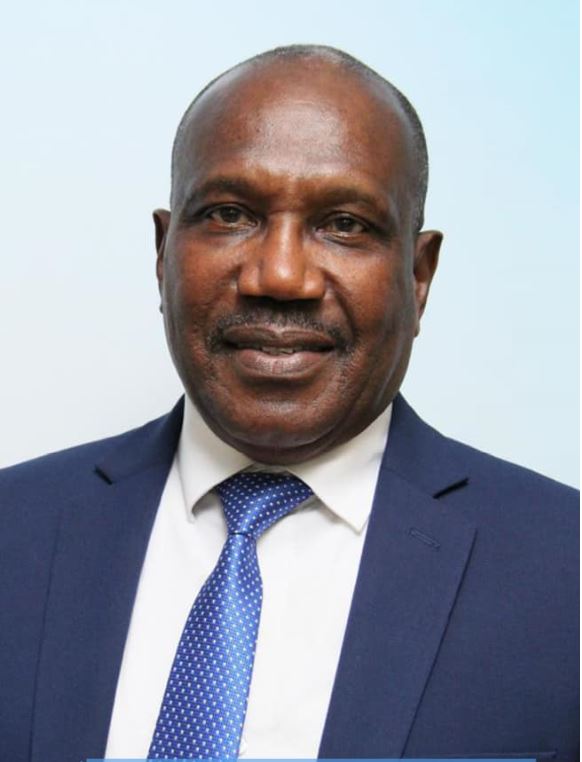
Minister of Communication and Digital Economy of Mali.
Former Executive Secretary of SMART AFRICA.
Former Secretary-General of the International Telecommunication Union. Dr Hamadoun I. Touré, was the Secretary-General of the International Telecommunication Union (ITU) since January 2007, was re-elected to this post for a second four-year term in October 2010.
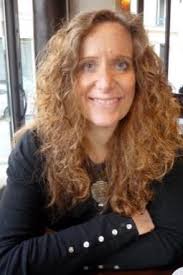
Dr. Dafna Feinholz is UNESCO’s Chief of Bioethics and Ethics of Science and Technology. She leads different activities aimed at reinforcing capacities of Member States to manage bioethical challenges and to identify the ethical, legal and social implications of cutting-edge science, emerging technologies and their application for sustainable development. She is also responsible for the secretariat of UNESCO International Bioethics Committee (IBC) and World Ethics Commission of Science and Technology (COMEST).

Mr Dick Christophe NG SUI WA was appointed Chairperson of the Information and Technologies Authority in February 2020. He has been a practising Barrister since 1991, is partner in the legal firm De Castelnau-Sui Wa and has extensive experience as a legal adviser and advocate.
Mr Ng Sui Wa’s career has seen him occupy a number of high-level positions in State institutions. From May 2018 to October 2019, Mr Ng Sui Wa has been serving as Commissioner of the newly constituted Independent Police Complaints Commission as appointed by the President of the Republic of Mauritius. Prior to that he has also been the legal adviser on an ad hocbasis to The Mauritius Police Federation (2001 to 2010). Mr Ng Sui Wa is also member of the Inner Temple Barristers’ Society, United Kingdom; member of the International Bar Association Worldwide and a member of the Hague Academy of International Law, Netherlands. He has also been an office bearer in a number of organisations having served as Former Secretary General of the Chinese Business Chamber; Treasurer of the Mauritius Bar Council and been an Executive Committee member of the Mauritius Gymkhana Club.
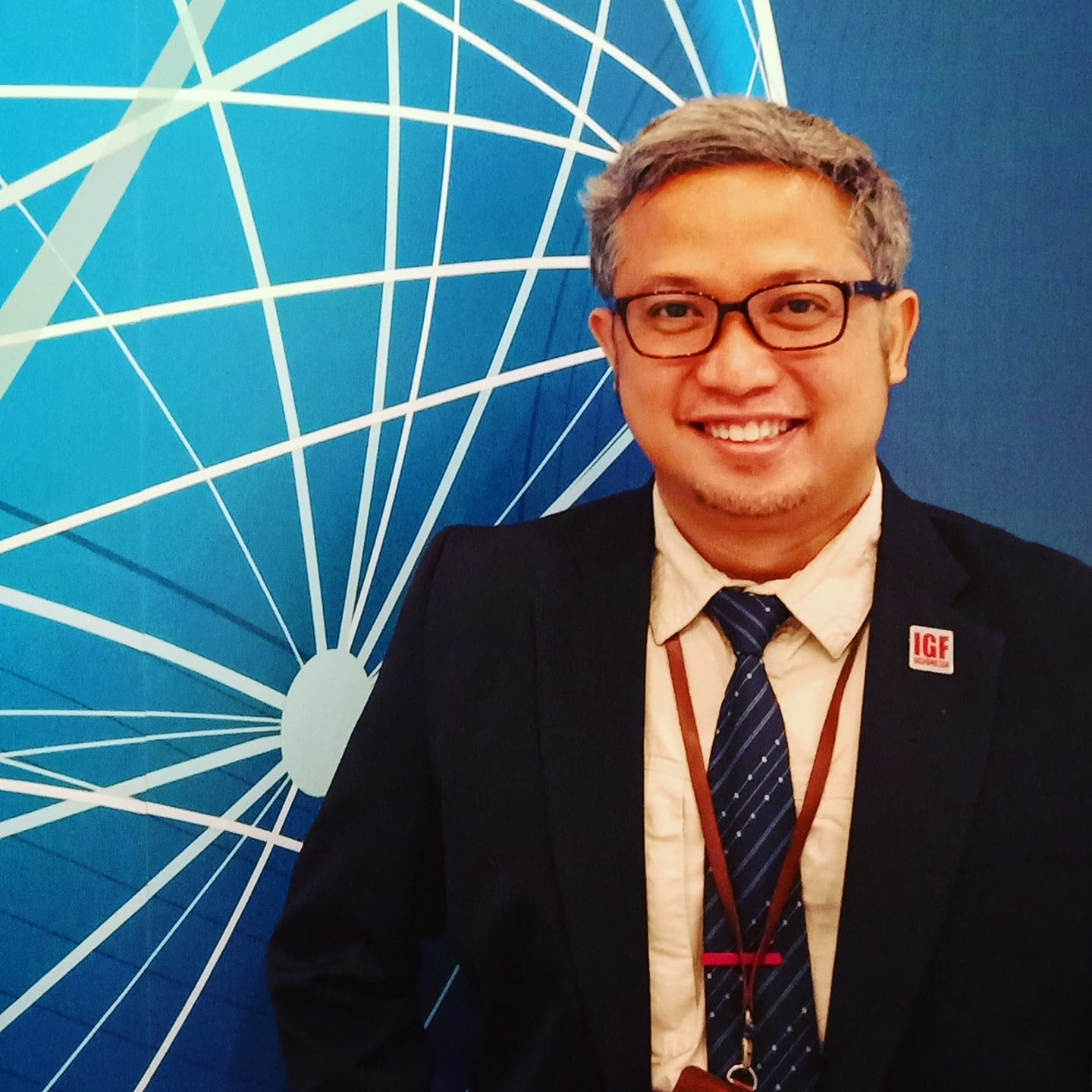
Recent Activities:
- ICT Watch Indonesia, Jakarta, Digital Literacy & Privacy Officer (since July 2017)
- KPCPEN (COVID-19 Handling and National Economic Recovery Committee), Public
Communication Team (since September 2020)
- IGF (Internet Governance Forum) – United Nations, Indonesian Representative for
Multistakeholder Advisory Group (MAG) Meetings (since March 2018)
- SIBERKREASI, Digital Literacy National Movement, Advisory Board (since October 2017)
- MASTEL (Indonesia Infocomm Society), Member (since 2015)
- ISOC Global, Asia Pacific and Jakarta chapter, Member #71500 (since 2015)
- Global Partners Digital, London, Research Fellow (since 2013)
- Toronto University, Citizen Lab, Toronto, Research Fellow (since 2012)
- Ashoka, Washington DC, Social Entrepreneur Fellow (since 2012)
- Lecturer for subject Digital Literacy and Computer-Mediated Communication (since 2002)
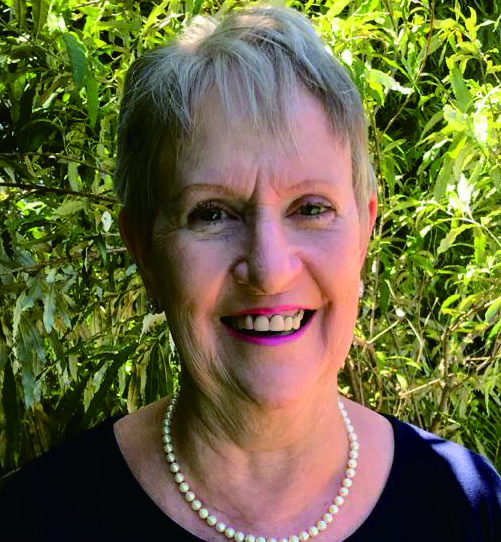
Moira de Roche is an independent consultant. She is the Chair of IFIP (International Federation for Information Processing) IP3, and a member of the IFIP board. Moira was awarded the IFIP Silver Core in 2016.
Moira worked on the IFIP Ethics Task & Finish Group. This team, using the ACM Code of Ethics as a starting point, drafted a Code that is suitable for use by any IFIP member society. The code has been published electronically and will come out in book form in September 2021.
Moira is an accomplished speaker and has presented at conferences around the world and in South Africa, on diverse subjects including Technology & Learning, IT Leadership, Professionalism, Trust & the Duty of Care in Digital, as well as people-related issues with Industry 4.0. She is often quoted in the South African press in articles on Education and Learning. She has attended and presented at the World Summit for Information Society since 2012 and has been Head of Mission for IFIP at WSIS for the past two years. A Past-President of IITPSA (Institute of IT Professionals South Africa) Moira is a Professional Member and Fellow and serves as a Non-executive Director. She received the IITPSA Distinguished Service in ICT Award in 2009. She is currently chair of the IITPSA Social and Ethics committee.
Moira is a Councillor for the South African National Museum, which is in Bloemfontein, South Africa. She also serves on the board committee: IT, Marketing & Core Business. She is a member of ACM and the South African Institute of Directors. Because she is passionate about Professionalism, it follows that Moira is also passionate about Ethics – which she considers the cornerstone of Professionalism.

Nishan Chelvachandran is the Founder of Iron Lakes (Finland), a cyber impact consultancy specialising in providing expertise from the conflux of technology and humanity, with clients and partners from across the world, ranging through private business, NGO’s and Governments. He is also a Director at Future Memory Inc (Canada); a creative and speculative design consultancy that pressure tests and anticipates undesirable futures to avoid harmful, unethical or negative consequences. He is a High-Level cybersecurity adviser, strategist, published author, researcher, and former UK Police Officer, with years of experience built on the strong foundations of bespoke operational activity in the UK Public Sector. Nishan spent 6 years as one of the UK National leads for Diversity in Policing, driving equity throughout the Police in the UK.
Nishan specialised in fields such as Digital Transformation, Digital Intelligence Forensics, Cybercrime, Cyberoperations and Cyberwar, Surveillance, and Intelligence. Nishan’s research interests include Big Data keyword and behavioural analytics, jurisdictional and legislative affairs relating to cyber-operations and cyber-warfare, ethical frameworks for mass and automated data surveillance, profiling and decision-making, IoT, AI and it’s ethical and responsible use and design, and Data Use and Privacy. He is an advisor in AI Commons, and an Ambassador for the Xprize Pandemic Alliance. He is actively engaged in the Cybersecurity and Impact Tech Space. A thought leader in the Cyber sector, He is actively driving the UN’s Sustainable Development Goals agenda and initiatives involving AI for Good.

Kirthi Jayakumar is a feminist researcher and lawyer from Chennai, India. She founded and runs The Gender Security Project, one of the few WPS centres in the global south, which works at the cusp of gender, security, peace, and conflict through research, reportage, and documentation. Kirthi coded an app for survivors of gender-based violence called Saahas, which works as a web and mobile app. She taught herself to code and created a web app, a mobile app and a Facebook ChatBot to support survivors of gender-based violence across 196 countries, and to assist bystander intervention.
-
 C3. Access to information and knowledge
C3. Access to information and knowledge
-
 C10. Ethical dimensions of the Information Society
C10. Ethical dimensions of the Information Society
-
 Goal 4: Ensure inclusive and equitable quality education and promote lifelong learning opportunities for all
Goal 4: Ensure inclusive and equitable quality education and promote lifelong learning opportunities for all
-
 Goal 5: Achieve gender equality and empower all women and girls
Goal 5: Achieve gender equality and empower all women and girls
-
 Goal 10: Reduce inequality within and among countries
Goal 10: Reduce inequality within and among countries
-
 Goal 16: Promote just, peaceful and inclusive societies
Goal 16: Promote just, peaceful and inclusive societies
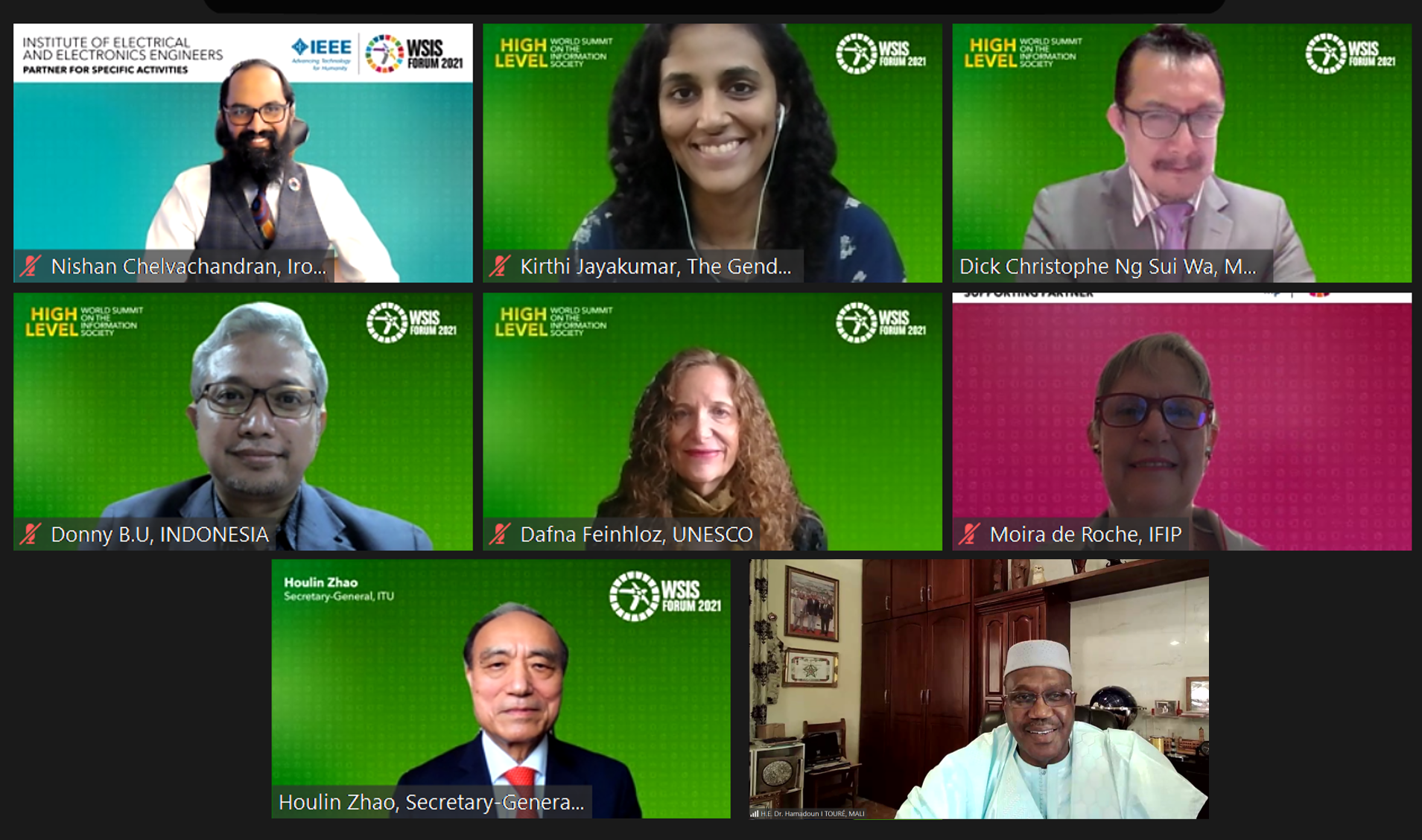
.png)


.png)
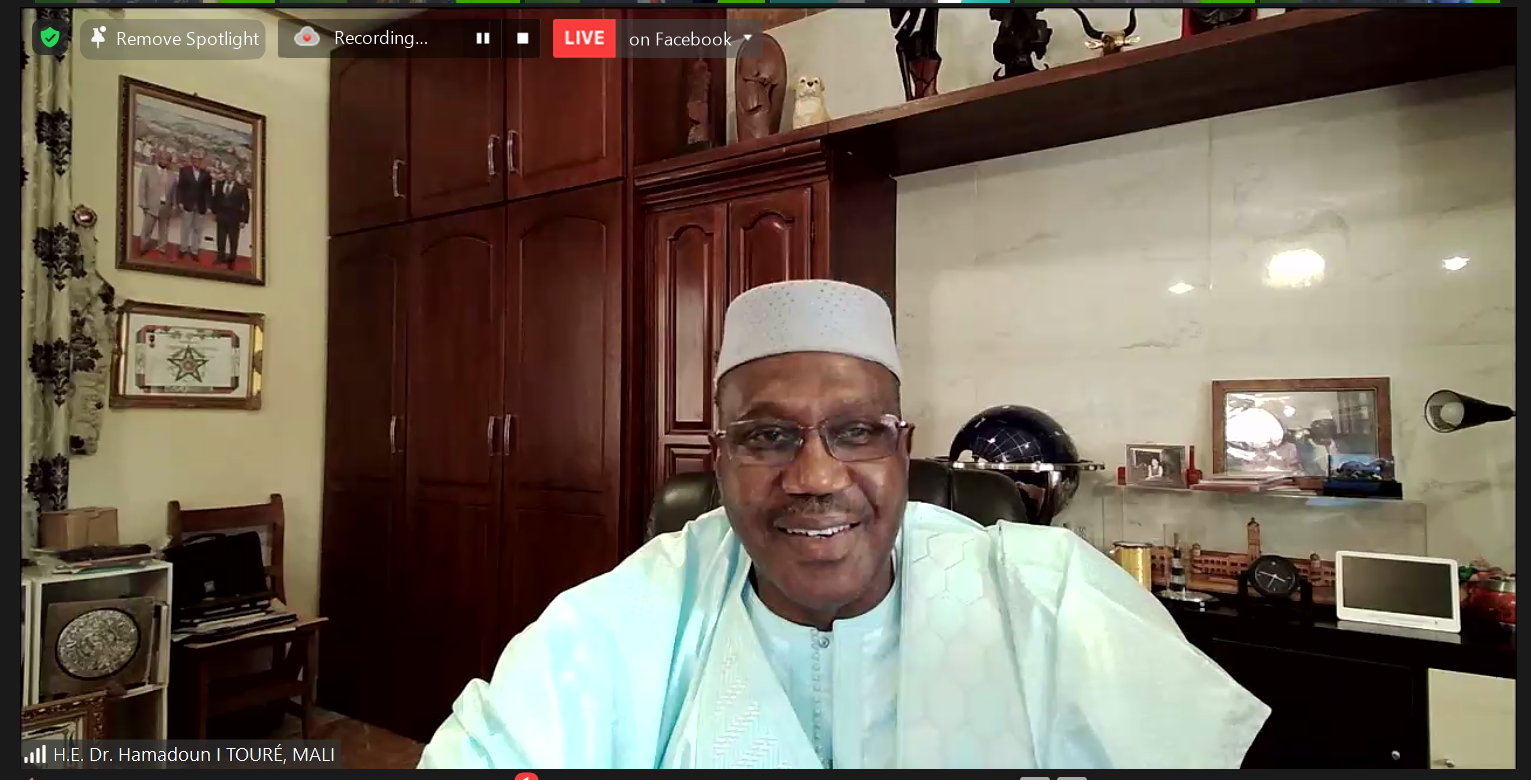
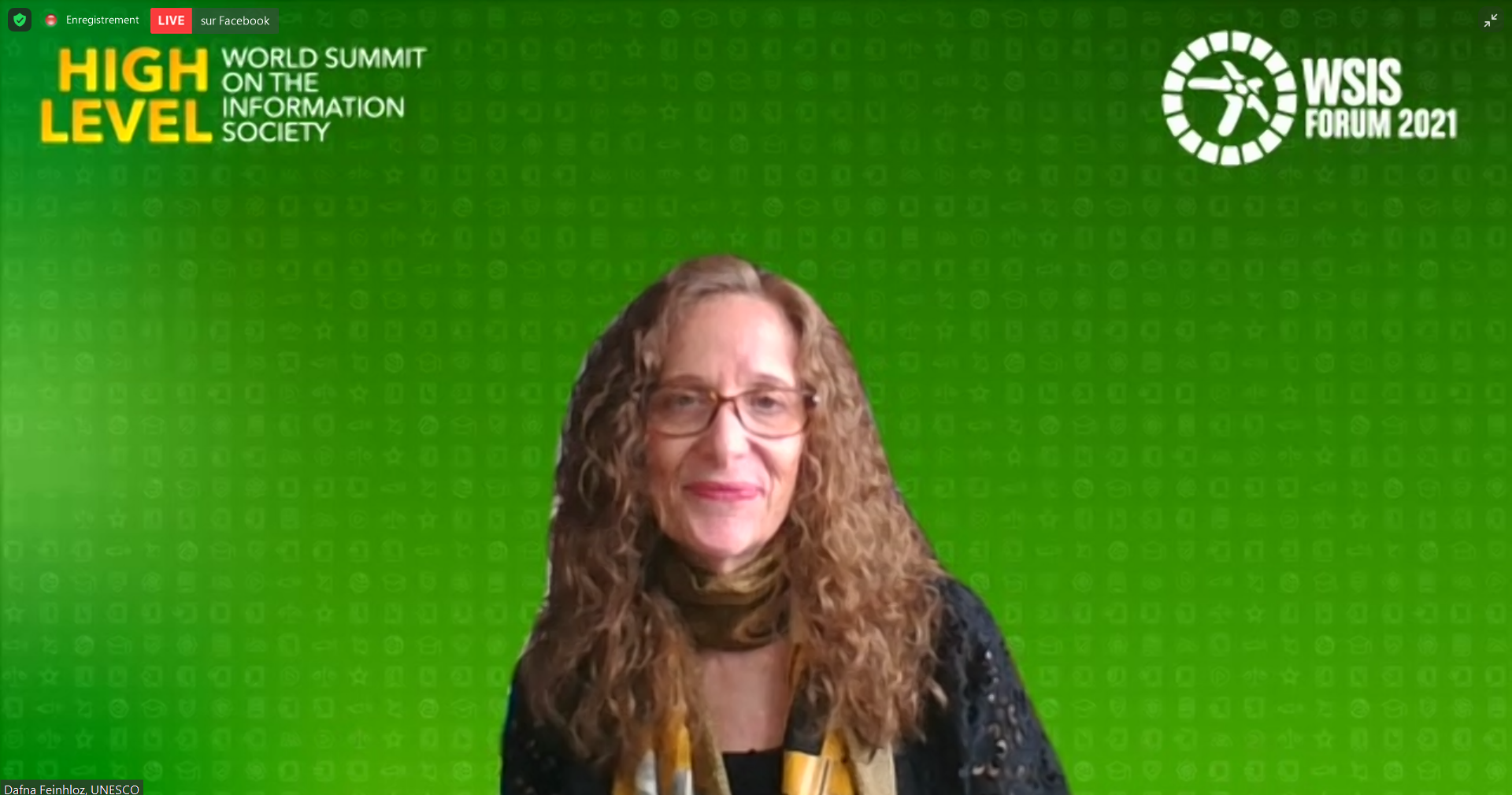
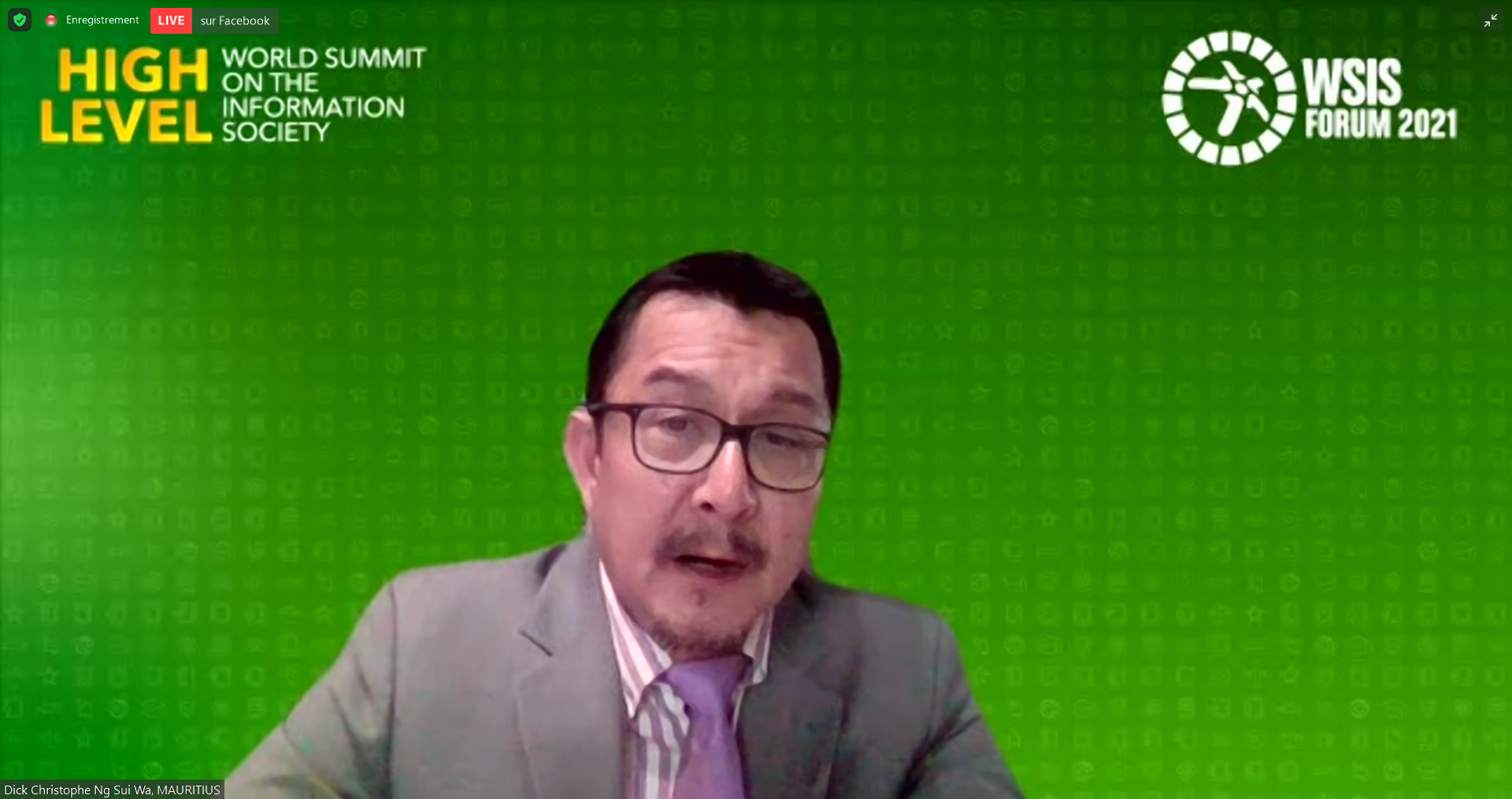
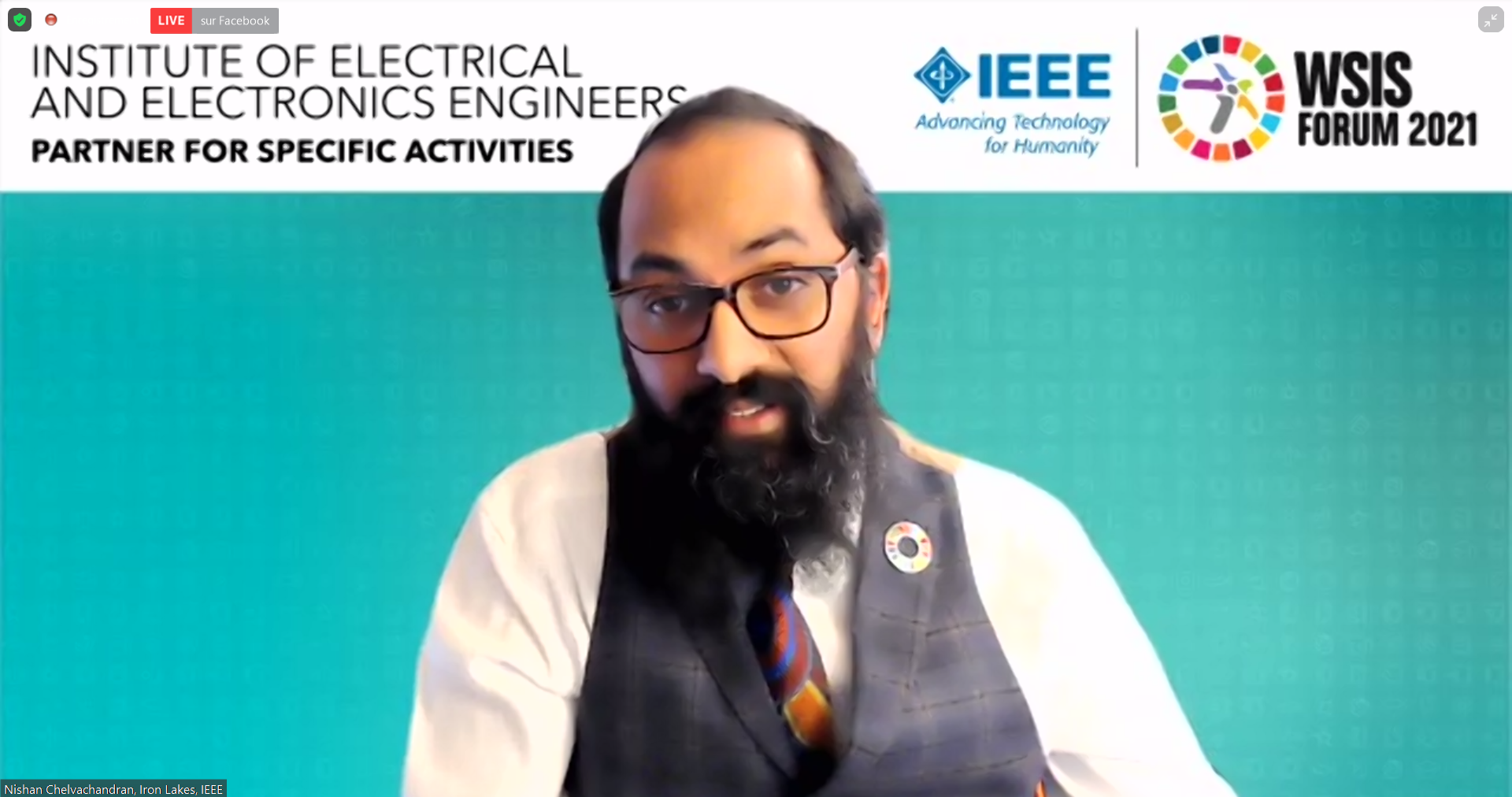
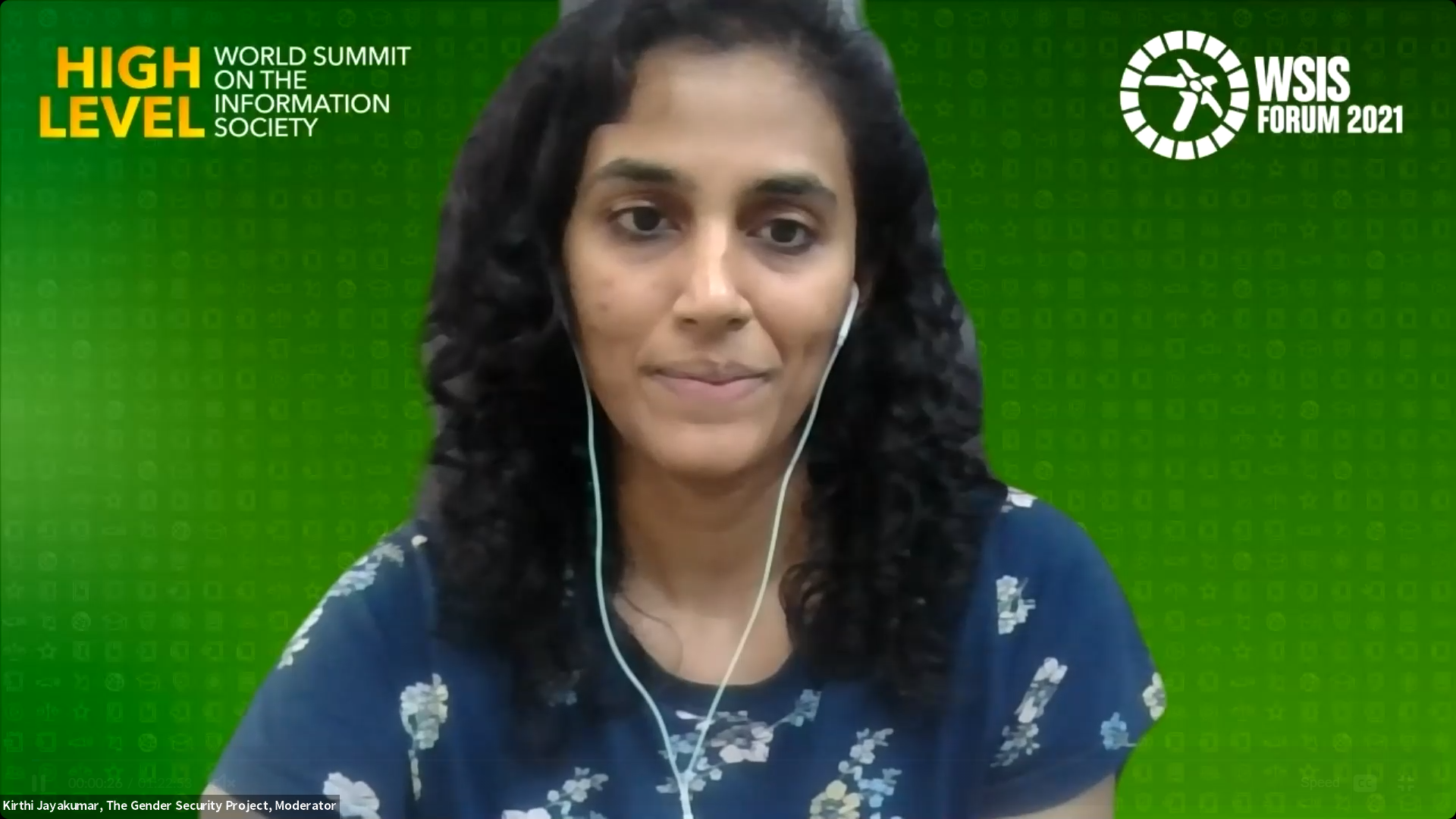
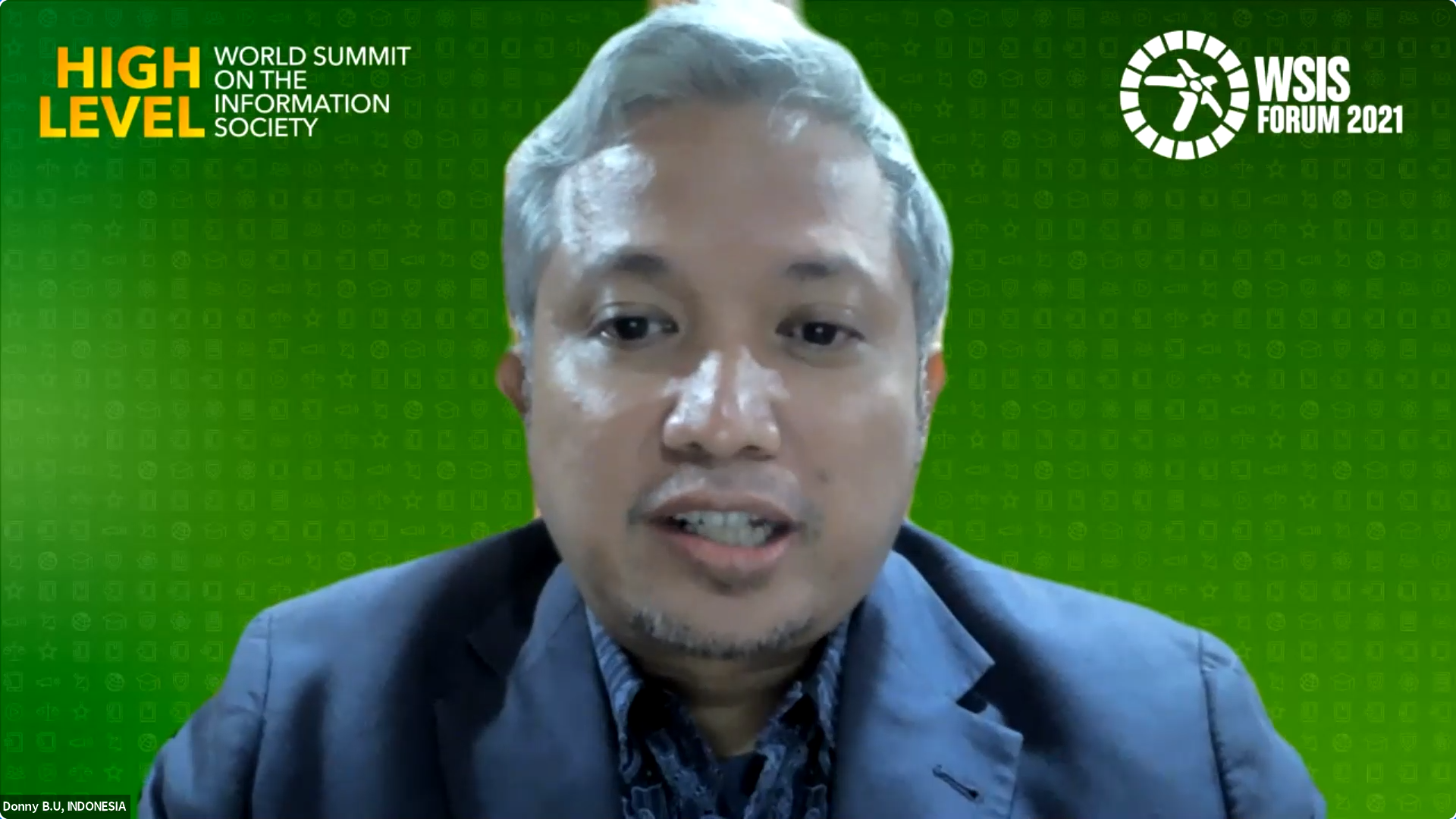
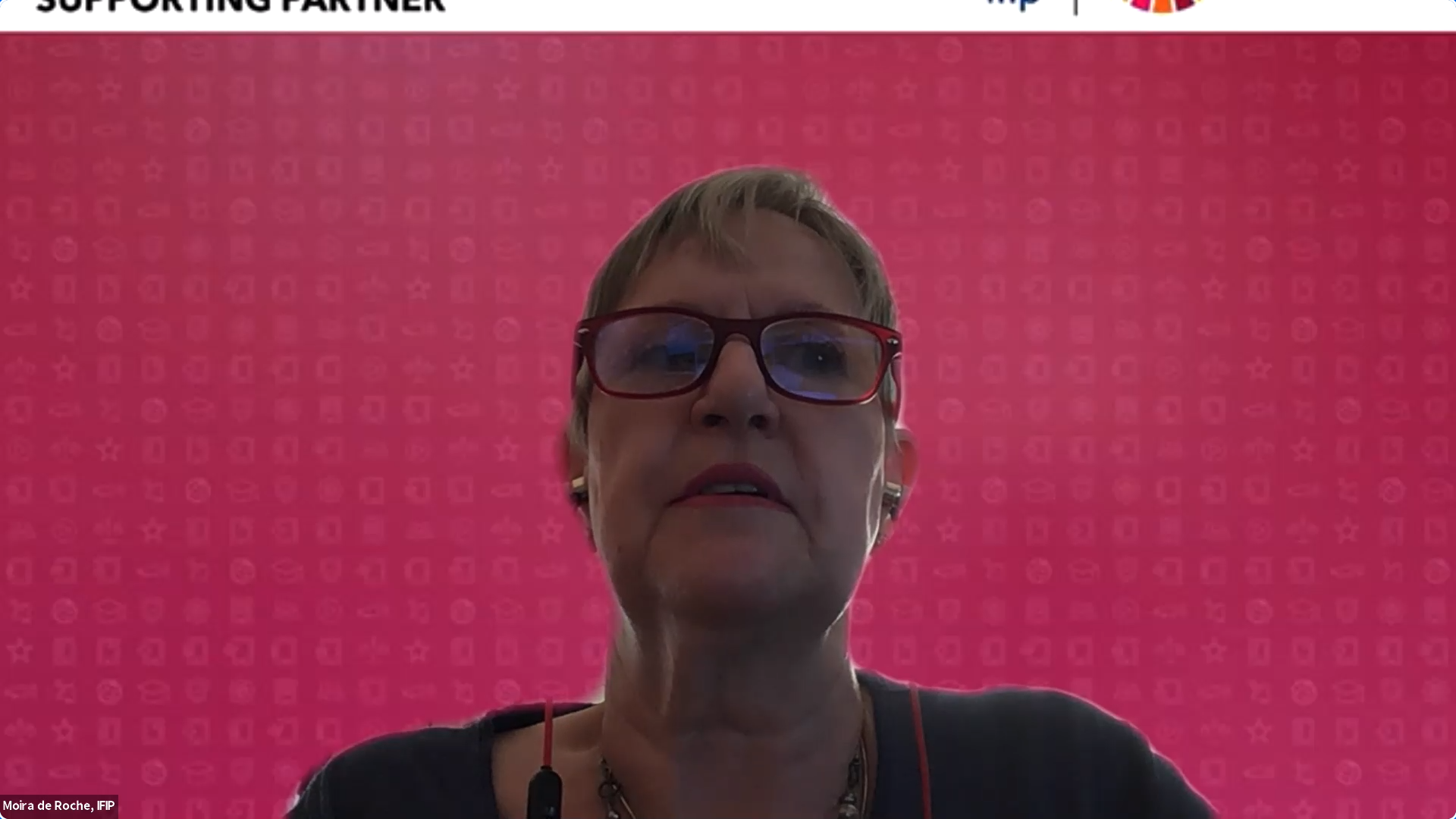
.png)